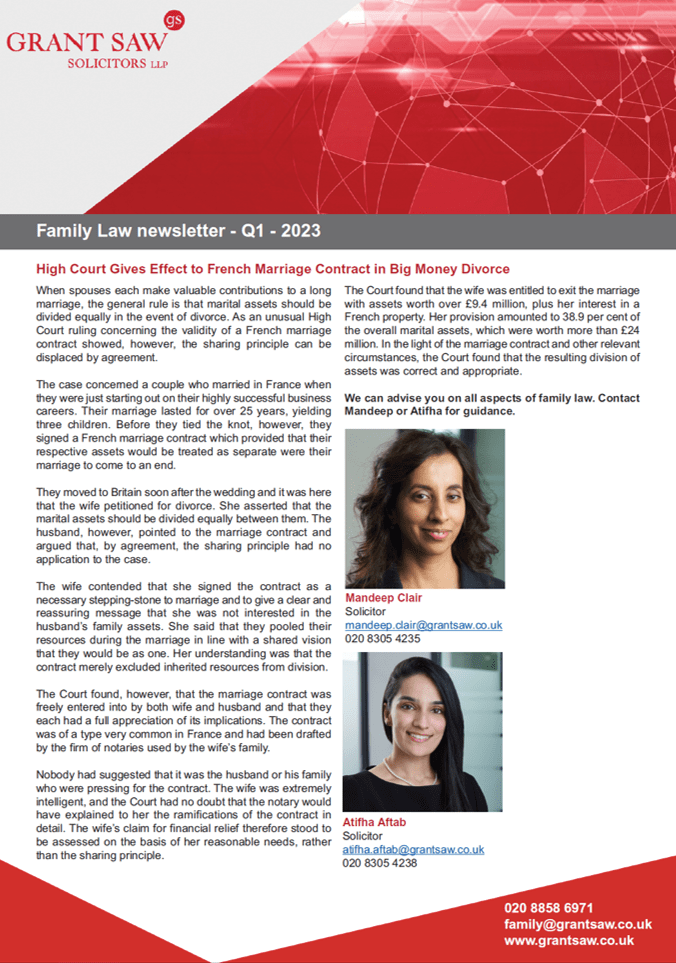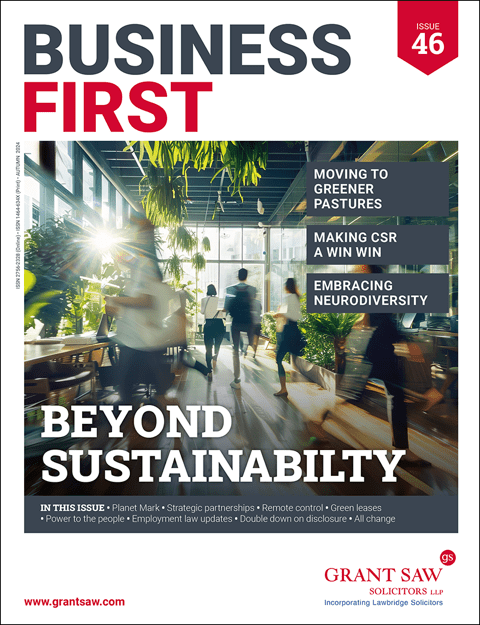When an individual is declared bankrupt, their interest in the “family home” is automatically transferred to the trustee. If the “family home” is solely owned by the bankrupt, then the legal interests transfers entirely in the trustee, whereas if the “family home” is jointly owned, then only the bankrupt’s share (i.e. their beneficial interest) in the “family home” transfers to the trustee.
The “family home” refers the bankrupt’s interest in a house, which is the sole or principal place of residence of the bankrupt, the bankrupt’s spouse or civil partner or a former spouse or civil partner, as at the date of the bankruptcy order. Therefore, if the bankrupt owns more than one property at the date of the bankruptcy order, it is important to establish which is the “family home”, for the purposes of the applicable rules; though if this is not obvious, a cautious trustee may be well advised to apply the three-year time limit to them all.
What is the three-year time limit?
Within three years from the date of the bankruptcy, there is a requirement for the trustee to take action and do something about this share. If no action is taken, the share in the property is automatically transferred back to the bankrupt.
Within three years of the bankruptcy order, the trustee must do one of the following:
- Where the property was jointly owned by the bankrupt and their spouse or partner, the trustee will usually invite the co-owner to purchase the bankrupt’s share. If the spouse or partner can afford to do this, the share will be transferred to the spouse or partner (or any person elected by the spouse or partner). If they are unable to afford this, there is an option for another family member or friend to provide funds to enable the transfer of the bankrupt’s share to take place;
- In the event that either the three-year time limit is looming and/or a voluntary sale is not agreed, then the trustee can apply to the court for a possession order and sale of the property.
Ordinarily, such application is not usually issued until after the first year of the bankruptcy. After this time, the Court is more likely than not to grant the order for possession and sale as the presumption is that the interests of creditors now take priority over the bankrupt’s family to stay in the family home unless there are exceptional circumstances.
- Place a charge on the property. An application can be made to place a charge on the property to protect the bankrupt’s estate if the trustee cannot apply for a possession order and sale. The value of the charge is limited to the trustee’s share of the property at date of registration.
Claims relating to the bankrupt’s family home
If a co-owner is unable to purchase the bankrupt’s share of the family from the trustee and the trustee threatens an application to the court for an order for possession and sale, the bankrupt and/or the co-owner may be able to challenge this. Below we set out a (non-exhaustive) list of possible challenges to the trustee’s application:
- The bankrupt does not have any beneficial interest in the family home;
- The bankrupt’s share in the family home is less than that which is alleged by the trustee;;
- The court may dismiss an application for the sale of a property if the realisable equity is below £1,000;
- There is a procedural error in the trustee’s application or the trustee has failed to comply with the rules on giving notice to the bankrupt, co-owners and occupiers;
- There are “exceptional” circumstances, which would have a significant detrimental impact on the occupants of the family home, if it were to be sold.
- The trustee’s application has been made outside of the three-year limit;
- The bankrupt has applied to annul, rescind or appeal the bankruptcy order. In practice, the court is more likely to stay the trustee’s application, pending the outcome of the bankrupt’s application to challenge the bankruptcy order;
- There are other assets belonging to the bankrupt which, when realised will be sufficient to satisfy the bankruptcy debts and expenses.
The bankrupt’s home is usually the most valuable asset in their estate and legal issues can arise in connection to the property. This may have a significant bearing on the outcome of the bankruptcy. Our legal experts can provide advice and assistance on the man issues that may arise in this area. For more information, please email litigation@grantsaw.co.uk or contact us on 020 8858 6971.
Meet the What happens to a bankrupt’s family home? team















































